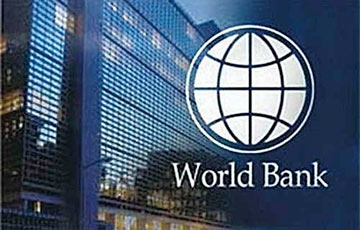World Bank Experts Tell of Economy of Belarus
9- 12.05.2021, 8:32
- 19,926

The forecast differs sharply from the situation in the region.
The World Bank predicts a fairly rapid recovery of the economies of Europe and Central Asia as a result of the gradual lifting of restrictions caused by the coronavirus epidemic and government support for industries affected by the pandemic. The economy of the region, according to the forecasts of the World Bank economists, will grow by 3.6% in 2021 and by 3.8% in 2022. The Belarusian economy will face a 2.2% recession. In the future, a slight recovery may occur, says the publication Belarusians and Market.
Against the backdrop of the pandemic, effective public administration is becoming increasingly important, given that public spending in the countries of the region reaches 40% of GDP. "However, as policymakers grapple with short-term health, education, and economic impacts, they must seize every opportunity to address the long-term challenges of increasing productivity, creating a more dynamic private sector, improving institutions, and transitioning to greener, lower-carbon industries," the review quoted World Bank Vice President for Europe and Central Asia Anne Bjerde.
"Belarus' incomplete transition to a market economy has burdened it with a low-productivity, highly leveraged state-owned enterprise sector and a weak and dollarized banking sector. There is a strong dependence on commodity exports. The National Bank estimates that loans taken out by large state-owned enterprises, sometimes with questionable ability to service on time, have averaged 14% of GDP over the past few years. Given the depreciation of the foreign currency, the share of public debt in GDP will grow," the World Bank said in a regional survey released March 30. Last year, GDP declined by 0.9%. The country has not slipped into recession only because the government and public sector were rapidly building up debts all last year. "In 2020, the lack of restrictions on mobility and easier credit for state-owned enterprises prevented a deeper recession, while the need for external financing was met by reducing reserves and debt financing," according to the published review.
The World Bank does not forecast a rapid recovery of the Belarusian economy, unlike other economies in the region: "With the ongoing political crisis and limited space for fiscal or monetary expansion in the absence of reforms in 2021, a deepening recession and a slow recovery are expected".
Even before the coronavirus epidemic, the lack of progress in reforms had already contributed to a sharp slowdown in growth with annual GDP growth averaging 0.5% since 2011. The COVID-19 outbreak and political turmoil after the August 2020 elections further exacerbated household depression and investor sentiment, contributed to the outflow of private deposits and the depreciation of the national currency against the US dollar by 18% during 2020, according to the survey. Analysts at the World Bank say that politically-driven support for inefficient enterprises could further erode already depleted fiscal and foreign exchange reserves and undermine macro-financial stability. The relocation of the export-oriented ICT sector could affect services exports. If new economic sanctions are imposed, the cost of doing business for individual exporters will increase.
World Bank analysts believe that our country faces the task of transitioning to an economy "less dependent on oil refining" in the medium term, as hidden oil price subsidies from the Russian budget are drying up as the Russian "tax manoeuvre" is implemented. Hence, it is necessary to "restructure enterprises, rationalize the wage fund in the public sector and tax expenditures". As a shock absorber, the WB suggests increasing support for the unemployed and other vulnerable groups.
"The forecast assumes a deepening recession in 2021 and a weak recovery thereafter if one assumes continuing political tensions, the negative impact on budget revenues from Russia's "tax manoeuvre," and the lack of structural reforms. The recently announced tax hikes - to curb budget deficits and pension system deficits - will hurt an already struggling private sector, which suffered from a lack of support during the COVID-19 shock.
The economic situation in 2020 will have long-term effects on private investment, inflation, and the ability to service loans. "Rising market interest rates and falling investor confidence will dampen domestic and foreign investment. Recent price controls are unlikely to curb inflation, but it may cause shortages of some goods under certain circumstances. The forecast for 2021 and the next years depends on external financing. In 2021, external financing needs will be closed through a combination of matched debt refinancing from Russia and the use of reserves; thus, it seems manageable. However, the years 2022-2023 will be more difficult due to upcoming payments on bilateral loans to Russia in 2022, as well as principal repayments on Eurobonds and the NPP loan in 2023," the review said.
Due to declining budget revenues and the need to service loans, the country's poverty rate will rise, but not by much, the WB analysts predict. If one takes $5.5 a day as a threshold value of poverty, we can say that the poverty level in Belarus will increase by only 0.1 percentage point.









